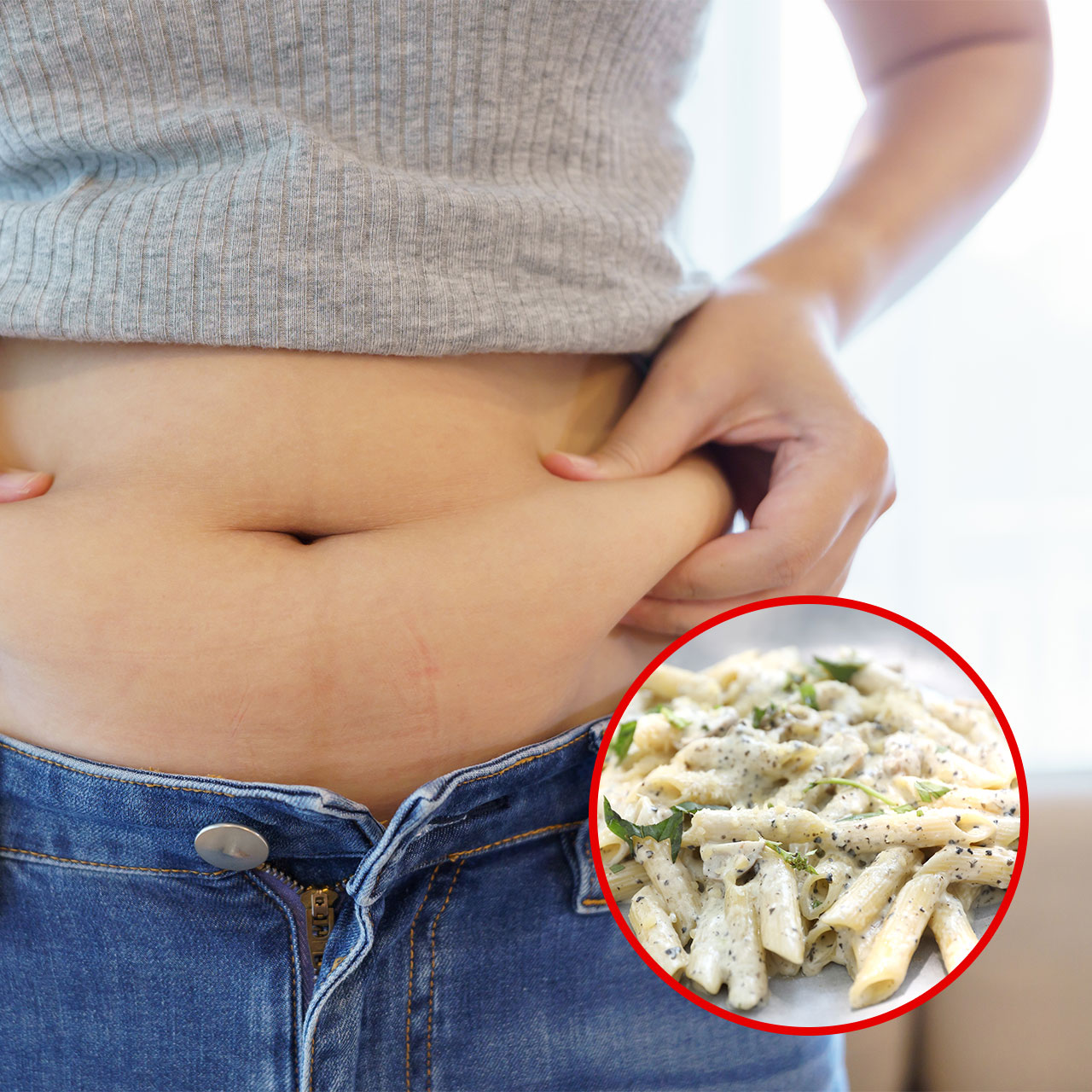This is an archived article and the information in the story may be outdated. Please check the time stamp on the story to see when it was updated last.
Bloating and water weight are unfortunate digestive issues which are incredibly common and in fact plague nearly 74% of people according to a 2013 study. Some foods such as avocado and turmeric have been proven to ease bloating and reduce the appearance of a heavily distended stomach, but on the flip side, there are also certain foods, particularly those which are commonly regarded as healthy, which can make this digestive issue even worse.
If you often find yourself with an uncomfortably bloated stomach and are unsure which food could possibly be the culprit within your diet, we spoke with Territory’s RD, Danielle McAvoy to get a rundown on a surprising and commonly eaten carb which may be the main trigger for your digestive woes.


Apples
The old saying goes “an apple a day keeps the doctor away,” and while apples are undeniably packed with nutrients and a valuable addition to your diet on the whole, they have been known to worsen bloating with the fiber and natural sugar content. It’s important to remember that just because a food causes bloating doesn’t mean it’s unhealthy, but removing apples from your diet in favor of other antioxidant rich fruits may help to alleviate severe bloating.
“Apples are a fall staple with many health benefits, but they can also be a culprit for bloating. Apples are high in fiber and have fructose and sorbitol, two sugars that many people have trouble digesting,” explains McAvoy.
Natural sugars are far and away healthier than additives such as high fructose corn syrup, but that’s not to say that they won’t still cause issues with your gut. Unfortunately even natural sugars can have some negative effects on your health, and while they won’t cause weight gain, they can spark significant bloating if you have a sensitive digestive system. “These sugars ferment in the gut, which creates gas and bloat,” notes McAvoy.
This is because sorbitol, the primary sugar in fruits, can be difficult to digest and may bring about issues such as gas, bloating, and even diarrhea. Also packed with fiber which can generally help to improve digestion and boost satiety, it may still cause gas in the short term.
Thankfully just because apples cause bloating doesn’t mean you need to completely remove them from your diet, and they can still be a valuable addition to your eating plan without wreaking havoc on your digestion. “To reduce the likelihood of bloating from apples, peel them. The skin has a lot of fiber that is hard to digest. Cooking also helps break the apples down and makes them easier to digest,” suggests McAvoy.
Peeling your apples and adding them to a warm dish like oatmeal can help to make them easier on the stomach, reducing bloating while still allowing you to enjoy their delicious flavor. However, if you are looking for other fibrous fruits which won’t cause such significant bloating, raspberries, blueberries and strawberries are great options as well.


























